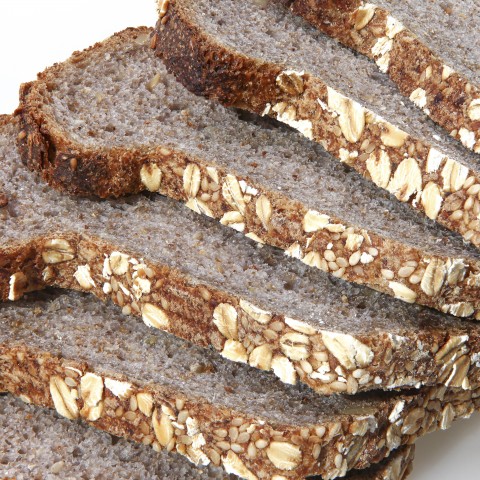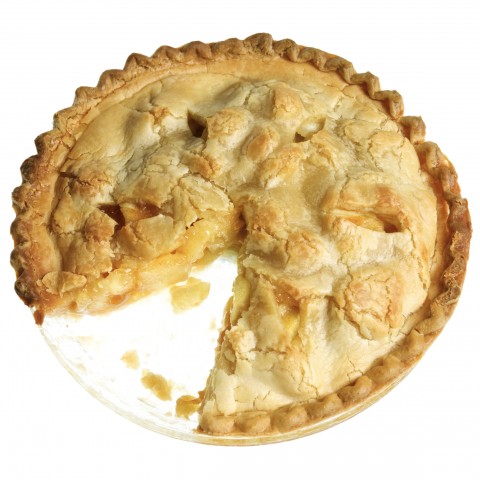Admit it—only the first few pages in your grammar books are thumbed back.
Most people like the idea of knowing all about the grammar of a particular language, but when it gets down to it, they much prefer communicating.
Naturally there are exceptions: I’ve known some dedicated students to start Russian with nothing but a dictionary, a notebook, and War and Peace.
But with a language like Romanian, how much good is the grammar (like Romanian connecting words) really going to do you? If you squint long enough at most of the words, the meaning pops into your head and, more often than not, it’s right.
Well, it’s not quite that easy. And with a grammar point as ubiquitous as Romanian conjunctions, getting the meaning “mostly right” tends to mean that out of the dozens of times you say it per day, you’re getting it wrong more times than you’d prefer to.
Fear not: Here’s your perfect introduction to the finer points of using conjunctions in Romanian, and a comprehensive list of Romanian conjunctions you’ll use every day. Conjunctions in Romanian are your ticket to perfect speech.
Table of Contents
- What is a Conjunction?
- The Simple Romanian Conjunctions
- The Complex Romanian Conjunctions
- Two Letters, Five Distinct Conjunctions: The Case of Că
- A Uniquely Romanian Conjunction
- How RomanianPod101 Can Help You Master Romanian Grammar
1. What is a Conjunction?
Conjunctions connect two or more things in your language. In fact, many people just call them “connectors.” And we use them constantly.
We can combine two potential sentences into one with a conjunction, like so:
- John is here. Mary is here.
John and Mary are here.
Easy stuff! Once you see how it works in English, plenty of Romanian conjunctions fall right into place. And if you never got a handle on this grammar point, think how limited your language ability would be.
2. The Simple Romanian Conjunctions
The easiest conjunction in the whole language is also the most common one: și meaning “and.”
- Vreau pâine și apă.
“I want bread and water.”
Like in English, people will sometimes use this as a filler, drawn out to continue a sentence without really knowing how it will end.
- Are la bază gemuri de toate felurile, scorțișoară șiiiiii… mere coapte.
“It has many types of jam, cinnamon, annnnnd…baked apples.”
Naturally, you can use it to list nouns, verbs, or adjectives. The Oxford comma isn’t used in Romanian.
ci is another useful conjunction, used to set up an explicit contrast between two things. You can think of it as being similar to the English word “but” or “on the contrary.” This contrast happens in a single sentence—note how the second half can’t stand alone.
- Nici eu, ci el.
“Not I, but he.”
Next we have the word ori, which is easy to remember because it’s almost the same as the English conjunction “or.” In fact, it’s practically interchangeable:
- Viață-n libertate ori moarte.
“Life in liberty or death.”
As in English, we can also set up an “either / or” equivalent. Here we’ll repeat ori both times.
- E ori ăsta, ori ăla!
“It’s either this one or that one!”
For the same construction, you can also choose a more literary variant, fie.
- Vom învăța ceva, fie din structura sa chimică, fie prin măsurare.
“We will learn something, either from the chemical structure or from measurements.”
And if you want the more formal register, but two “or”s in the same sentence spooks you, then try out the third synonym, sau.
- Au fost unele incidente la decolare sau aterizare.
“There have been some incidents with take-off and landing.”
With all these choices, you may forget to learn how to negate them! And as strange as the two-part conjunctions may seem, we do have a mandatory one with “neither / nor” in English. You guessed it; in Romanian, it’s a double-up as well: nici.
- Aici nu există nici bunuri, nici servicii.
“There are neither goods nor services here.”
3. The Complex Romanian Conjunctions
Now we’ll move on to complex conjunctions, which can connect two different full sentences together. Consider the sentences “He didn’t go,” and “I went.” In English, we can use the conjunction “but” to connect those into a single “He didn’t go, but I went.” Thus, this takes two independent sentences and forms them into one.
In Romanian, we can use the word dar to express “but” in this particular way. As in English, it’s always used with a comma in front.
- Credeam ca sunt singura, dar și tu ești aici.
“I thought I was alone, but you’re here too.”
There’s a similar word, însă, that doesn’t require a comma. It’s kind of like adding a comma plus “however” to the word it follows.
- Instinctul însă îmi spune s-o fac.
“My instincts, however, say I should do it.”
When we want to express the concepts of “except for” or “apart from” we have to use a set phrase, namely în afară de.
- Nu se mișca nimeni în afară de hoți.
“No one moved except for the robbers.”
Enough of this contrariness. How about some more agreeable Romanian conjunctions? The word for “so” and “therefore” is deci. You use it to connect two similar ideas that logically follow from one to the other.
- E pediatru, deci iubește copiii.
“He’s a pediatrician, so he likes kids.”
This is another one you can draw out in speech if you don’t know how to end the sentence in a better way.
- Am doctoratul, deciiii…
“I do have a PhD, soooo…”
To express certain relations of time, we can use the phrase după ce or simply după by itself. This means “after,” and it can actually be a simple or complex conjunction. Here’s how it looks in a simple sentence:
- După epidemie, nimeni nu a mai trăit acolo.
“Nobody lived there after the outbreak.”
And then in a complex sentence, connecting two shorter clauses:
- Lucrurile au mers rău, după ce el a fost transferată aici.
“Things went bad after he was transferred here.”
Speaking of time, what if two things are going on in the same moment? In English, we can use “while,” and in Romanian, we’ll go with the set phrase în timp ce, literally “at the time of.”
- Pot vorbi în timp ce lucrez.
“I can talk while I work.”
We can, in fact, use this to contrast two things more directly, even when time isn’t explicitly involved.
- Lui Mihai îi place plăcinta cu mere, în timp ce Andreei îi place cea cu vișine.
“Mihai likes the apple pie, while Andreea likes the one with cherries.”
4. Two Letters, Five Distinct Conjunctions: The Case of Că
By itself, că means “that.” It’s clearly cognate to que in Spanish and che in Italian, and yet it’s one of the most flexible conjunctions in all of Europe. Mastering all of its different meanings truly opens doors of expression for you.
How can we use it? Let’s have a look at five different ways:
1. Reporting what somebody or something said:
- Jordan a spus că Mihai a fost nebun.
“Jordan said that Mihai was mad.”
2. Expressing the cause of some event:
- Am ajuns târziu că mi s-a stricat mașina.
“I arrived late because my car broke down.”
3. Showing a certain type of an action:
- Eram bucuros la gândul că o voi revedea.
“I was overjoyed at the thought that I would see her.”
4. Expressing the degree of strength of an adjective:
- Este așa de furios că a început să țipe la toată lumea.
“He’s so angry that he started yelling at everyone.”
5. Passing judgment on a situation:
- E rău că nu te lași de fumat.
“It’s bad that you do not quit smoking.”
With all those out of the way, could there be anything left? Just one…
5. A Uniquely Romanian Conjunction
There’s one conjunction we haven’t mentioned yet. It’s not particularly difficult to understand, but it deserves its own section because it doesn’t have any parallels in any related languages.
The preposition is iar. Sometimes it means “but” while other times it means “and,” except when it feels like meaning “while however.”
By and large, this Romanian conjunction word is for introducing a contrast. It doesn’t imply that the contrast is very strong, but it points it out unmistakably.
- Ninge la Budapesta, iar la Bucureşti bate vântul.
“It’s snowing in Budapest, and it’s windy in Bucharest.”
- Lui Adrian îi place fotbalul, iar Mariei baschetul.
“Adrian likes football, and Mary (likes) basketball.”
As you can see, the sentiment here isn’t difficult to understand—this isn’t some strange unknown realm of human experience only the Romanians have tapped into. You can think like this too. But note that we could translate this word as “though,” “while,” or “but,” and still have the same general meaning.
We can’t always use iar with every contrast. For that second sentence, if we wanted to say instead, “Mary doesn’t like football,” or Mariei nu-i place, then iar sounds a bit strange because now Mary is directly contrasting Adrian instead of just tangentially.
6. How RomanianPod101 Can Help You Master Romanian Grammar
The more you actually read and listen to Romanian, the more these finer points are going to stick out to you. Before long, with a good study plan, you’ll have an innate sense of these nuances that rivals a native-born Romanian.
And out of anything you do to increase your ability in Romanian, learning the conjunctions well is probably the closest thing to a silver bullet.
Each one that you learn allows you to make numerous new sentences and constructions. Reading an article like this is like running through dark hallways and flipping on lights in your brain.
But if you don’t use it, you’ll lose it! Take a look at the latest RomanianPod101 lessons right here, and make sure those new possibilities stay open.
Before you go, let us know in the comments how comfortable you feel using Romanian conjunctions now. Is there anything you’re still struggling with? We look forward to hearing from you!
Author: Yassir Sahnoun is a HubSpot certified content strategist, copywriter and
polyglot who works with language learning companies. He helps companies attract
sales using content strategy, copywriting, blogging, email marketing & more.





















